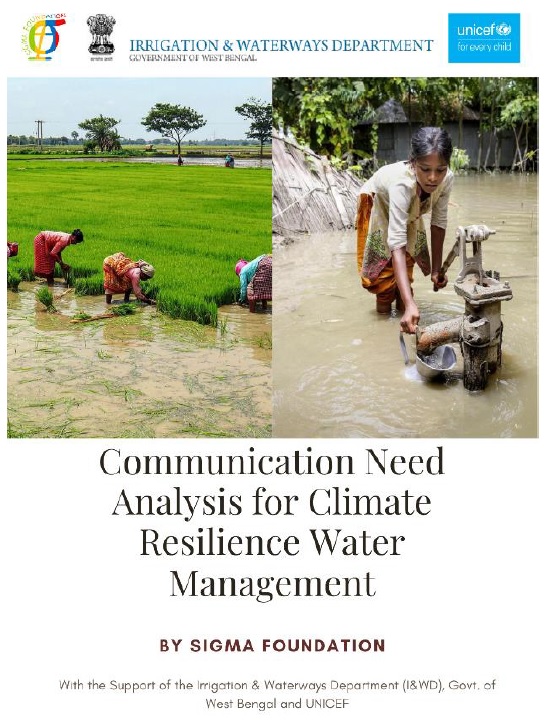Communication Need Analysis for Climate Resilience Water Resource Management
Contributed By: Dr. M.N.Roy, Dr. Debasri Mukherjee, Er. Sohini T.ChatterjeeUNICEF West Bengal Field Office intends to have a communication need assessment of the proactiveness of the community to own, protect and maintain the water supply system especially during the natural calamity. In this connection a situation assessment was conducted in three blocks of West Bengal namely Chanditala I (critical) & Jangipara (semi-critical) blocks in Hooghly district, and Barjora (safe) block in Bankura district. Further, it was identified that no or little awareness generation was conducted at the community level and huge gap was identified regarding capacity building and strengthening the community and the stakeholders to combat with the situation during flood or drought. In this context, a communication need assessment was made by SIGMA Foundation as a partner of UNICEF. The aim of this project was to assess the gap of knowledge regarding strategic plan of IEC and behaviour change communication related with climate resilient water supply system.
It was found that the community and the farmer groups of the projected areas had inadequate knowledge as to how their ground water has been changing with the climatic variability. To improve the knowledge base of the community and other associated stakeholders, a three-fold approach was suggested. The related capacity building needs, particularly of the GP functionaries, for preparing and implementing suitable IEC plan based on the local context have been highlighted in the report. Further it was noted that the effective communication to the various water users and other stakeholders at the village level as well as advocacy with various service providers to make the delivery system climate resilient is one of the critical requirements to make the community climate resilient. There will be need for developing specific context specific messages and working out the most effective mode of communication to reach the messages to all the stakeholders. There is further need to make advocacy with the higher-level officials for their more proactive engagement in making people aware about various aspects of CRWM and taking up suitable mitigation and adaptation measures.

